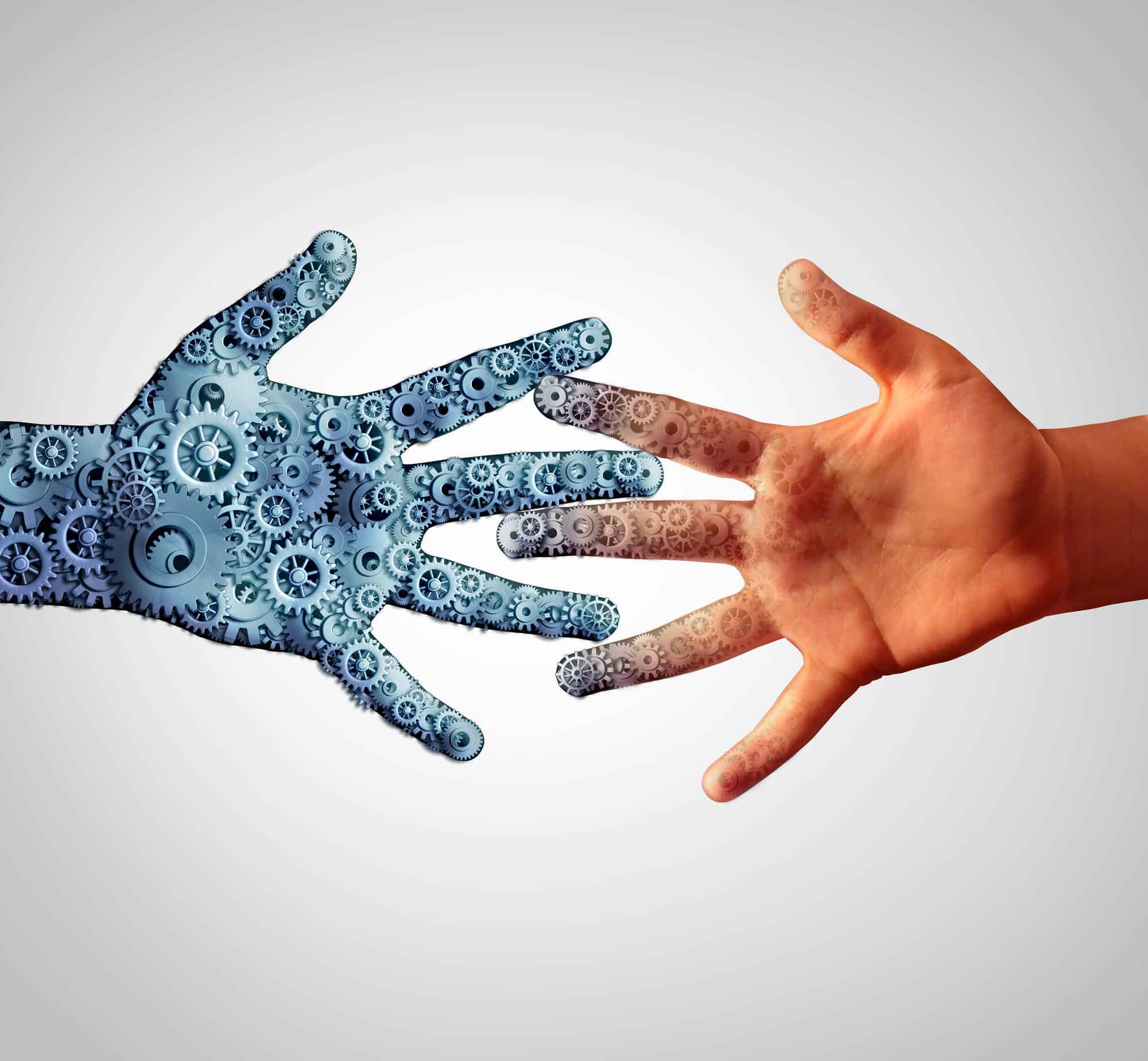In recent years, Kurzweil has been writing his next book - "The Singularity is Closer". Only a few - his closest friends and colleagues - know what the exact content of the book will be. And here, at the futurists' conference, we were exposed to one of them: Dr. Jose Cordeiro, who presented the draft of the new book and shared the most impressive prediction of it

One of the most exciting predictions made at the Dubai Futurists' Conference came almost by accident. Futurist Dr. Jose Cordeiro, who has been engaged in predicting the future of aging for several years, stood on stage and told about the possibility of stopping aging. He waved a thick binder in front of the audience - a book in the final stages of editing. This, he announced, is Ray Kurzweil's next book, "The singularity is even closer", according to which those who survive just another decade will be able to live forever.
About. Probably.
We will explain.
Ray Kurzweil is one of the most recognizable futurists of our generation. He raised himself from the dirt, with the invention of the synthesizer in his youth, and became a millionaire, businessman, inventor and author. In 2005, he published his best-known book - "The Singularity is Near" - in which he brought the concept of "exponential development" to the public's consciousness.
A technology that develops exponentially is one in which each new generation of inventions is several times more successful than the previous generation. The emphasis is on "by how much". That is, the rate of progress itself increases over time. In computers, for example, Moore's Law is accepted which states that the number of transistors in a chip doubles every two years. Computers have obeyed this law quite nicely over the past fifty years, which is why the cheapest smartphone today is much more powerful than the most sophisticated and expensive supercomputer of the XNUMXs.
Kurzweil also included in his book some bold predictions for the future: for example, that computers will be able to successfully impersonate humans by 2029 - a prediction that is already being realized or close to being realized. He claims to be 86 percent accurate in his predictions, and while that's debatable, everyone still wants to hear his ideas about the future. They may not materialize exactly as he predicts and exactly at the time he predicts, but they are always special, interesting and provide a vision for a better future. Or at least, very different from the present.
In recent years, Kurzweil has been writing his next book - "The Singularity is Closer". Only a few - his closest friends and colleagues - know what the exact content of the book will be. And here, at the futurists' conference, we were exposed to one of them: Dr. Jose Cordeiro, who presented the draft of the new book and shared the most impressive prediction of it. According to Kurzweil Daliva Cordeiro, within ten years the technology will reach the promised speed known as Longevity Escape Velocity. Or in the translation of Kalokal in Hebrew - "escape speed from old age." and in the initials - MMMMA.

More terms? Yes thank you. Don't worry, everything will be in order in the end. And you will live forever, which is a bonus.
So what? What is MMM?
I will explain with a simple example what mmmmm is. Every year we age by... one year. So far, everything is clear.
Now let's add a new variable to the picture: technology. Using sufficiently advanced technology, we can extend life in a variety of ways. Doesn't matter right now in which ways exactly: nanotechnology, biotechnology, or any other type of technology you can think of. What is important is that if we were to die, say, in 2050 of old age, then thanks to technology we will die later.
A simple calculation was made for Shmulik: a victim of thought-experiment mode. Shmulik is twenty years old today. If he lives in Israel, where the life expectancy for men is 82 years, then he has another 62 years to live. Now let's assume that today's technology is developing at such a speed that every year it adds six whole months to life expectancy. Our Shmulik expected to die at the age of 82, but he didn't realize that by the time he reached that age, technology would have developed enough to add another... 62-times-six-months, which is about 31 years.
Congratulations, Shmulik: you will live to be 113, only thanks to technology.
But wait! We added another 31 years to Shmulik, but the technology will not stand still for these 31 years and will hum to itself in inaction. She will continue to develop, progress, make leaps forward. It is not an exaggeration to assume that in Shmulik's additional 31 years, we will be able to extend the lifespan of the human race by an additional six months every year. And in simple words: for every additional year Shmulik ages, he will gain another year of life thanks to technology.
Do the math yourself, and you'll find that if Shmulik gains another year of life every year, then he becomes - in practice - a son of immortality.
Before you jump on the spot with the usual cry of "I don't want to live forever confined to bed after a heart attack and stroke", you should know that no one talks about prolonging life with a low quality of life. exactly the opposite. The idea is to prevent the various diseases of old age and repair the damage they cause in the body: heart disease, strokes, cancer, osteoporosis, type 2 diabetes, the wear and tear of the immune system and much more. Our Shmulik will not reach the age of 113 as a walking skeleton, but in the body of a mature man of sixty. Or maybe even forty or twenty years old.
This is the meaning of MMMA - escape speed from old age - high. This is why it is one of the most important terms today, even if it is not well known to the public. The higher the MMM, the greater our chances of reaching the age of one hundred, two hundred and even a thousand in good health.
According to what we hear about Kurzweil's new book, he predicts there that in ten years we will reach a high enough MMM to prevent death from old age diseases. In fact, if you manage to survive only another ten years in good health - then the technology will make sure that you will survive for a very long time.
This is, of course, a very simplistic prediction. Even if Kurzweil is right, it is clear that not everyone who reaches the year 2032 in good health will have eternal life. There can always be unusual cases of sudden heart attacks, car accidents and so on. And yet: if Kurzweil is right, then if you live another decade - you will have a real chance to continue living far beyond what you planned.
And we will continue and make it clear: Kurzweil does not expect that in 2032 the technology will suddenly appear that will cure you of all diseases. He only claims - according to the rumor at the conference, since only a few have read his book so far - that by that year technologies will be developed that will extend life enough to give time for the development of more technologies that will prolong life enough to give time for the development of more technologies that will prolong life enough to give time To develop more technologies that will extend life enough to...
You got it. This is a gradual progress. Still, Kurzweil believes it will be fast enough to provide many of us with eternal life by 2032.
Is Kurzweil right? Right now, it's impossible to know, especially since I don't know what his exact arguments are. He is more optimistic in this prediction than any other fortune teller I know who predicts the near future. But I certainly understand where his optimism is coming from. The rate of development of artificial intelligence is skyrocketing, and we are starting to see it applied in the field of medicine. It helps us to develop complex models of the body and of aging diseases and to design and create tiny nanomachines to treat diseases. All these things seemed like science fiction only five years ago, and now they are here.
Add to that the fact that artificial intelligence also helps us develop the next generations of itself, so that every year our computers also become more powerful. Maybe you don't see this progress at home, with your personal computers, but supercomputers continue to improve, and soon we will also have quantum computers that can jump-start biological, chemical and medical sciences. That is, all the abilities that artificial intelligence provides us today in the field of medicine, will be nothing compared to the abilities that it will make available to us in a decade.
So if you ask me if Kurzweil is right, my answer right now is that I am not sure if his prediction will come true in ten, twenty or thirty years. But given the growing power of technology, I would not be very surprised to find out that in this timeframe - by 2050 - we will already reach a high enough MMM to escape 'natural' biological death.
All of this, of course, depends on human civilization continuing to advance science and technology. This is not an obvious assumption. Disasters on a global scale can always happen, such as a nuclear war that will stop the scientific-technological boom we are experiencing today. And maybe kill a few billion people along the way. Even if we avoid such a war, governments can invest less in science and technology, or take steps that will unintentionally slow the pace of scientific-technological progress.
But if we continue to live another ten, twenty, maybe thirty years in good health, if there is no nuclear war or catastrophic government decisions, if the climate crisis does not worsen and if - if - if. If we manage to find the right path to the future, then we can also stay young forever.
Now you know the size of the reward that awaits us at the end of the road, if only we are smart enough to stop all these catastrophes.
More of the topic in Hayadan:
- Things Yorami know: Are we more creative than our ancestors?
- In the future: computers will give humans eternal life
- Stopping Death Chapter 1: The Road to Eternal Life: About aging, and the ways to prevent it
- Ray Kurzweil: "Within a decade we will have artificial intelligence at the level of humans"
- The prediction: a fusion of nanotechnology and biotechnology and both with the human brain
